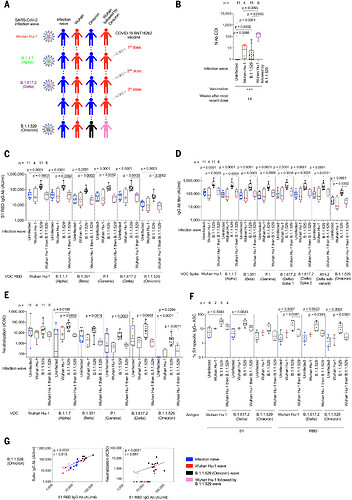Have you read this study?
Not once do they mention biochemical processes of depression or anxiety. In fact, the science is moving away from a biochemical cause of depression, even before this analysis was published this summer: Scientists Find No Evidence That Depression Is Caused by “Chemical Imbalance” or Low Serotonin Levels
There was no control group. These study findings do warrant further research.
I don’t have time to write a large analysis of this study. But it’s important to understand its objectives, conclusions, and shortcomings. The participants are primarily white female healthcare workers…people who have been under incredible pressures during covid.
No matter the headlines associated with this study (of which many have centered on those with anxiety and depression), the study was focused on psychological distress, which includes many factors (not just anxiety and depression, see study objectives below). Anxiety and depression were also not clinically diagnosed in these patients. We are a long way from making a generizable claim that clinically diagnosed anxiety and depression are causative, not just correlated, with long covid.
Study objectives:
To determine whether high levels of psychological distress before SARS-CoV-2 infection, characterized by depression, anxiety, worry, perceived stress, and loneliness, are prospectively associated with increased risk of developing post–COVID-19 conditions (sometimes called long COVID).
And the conclusion:
The findings of this study suggest that preexisting psychological distress is associated with subsequent risk of developing post–COVID-19 conditions. Further research should investigate whether interventions that reduce distress help prevent or treat post–COVID-19 conditions. Identification and treatment of biological pathways linking distress with long-term COVID-19 symptoms may benefit individuals with post–COVID-19 conditions or other chronic postinfection syndromes
And the study weaknesses:
Our study has several limitations. First, our study population was predominantly White and female and had a significant proportion of health care personnel, limiting generalizability. Second, a positive result on a SARS-CoV-2 test was self-reported, though self-reported health information has had high validity in these cohorts.61,62 Third, data were not missing at random, which might have introduced bias. However, results were similar in analyses using multiple imputation. Fourth, the agreement between symptoms reported on the final and monthly/quarterly questionnaires was moderate, suggesting a chance of outcome misclassification, which may bias our results toward null. Nevertheless, symptoms of post–COVID-19 conditions change over the course of the illness.63 Fifth, depression and anxiety were measured using validated scales rather than clinical diagnoses.
Here’s the full study: Association of Psychological Distress Prior to Infection With Risk of Post–COVID-19 Conditions
